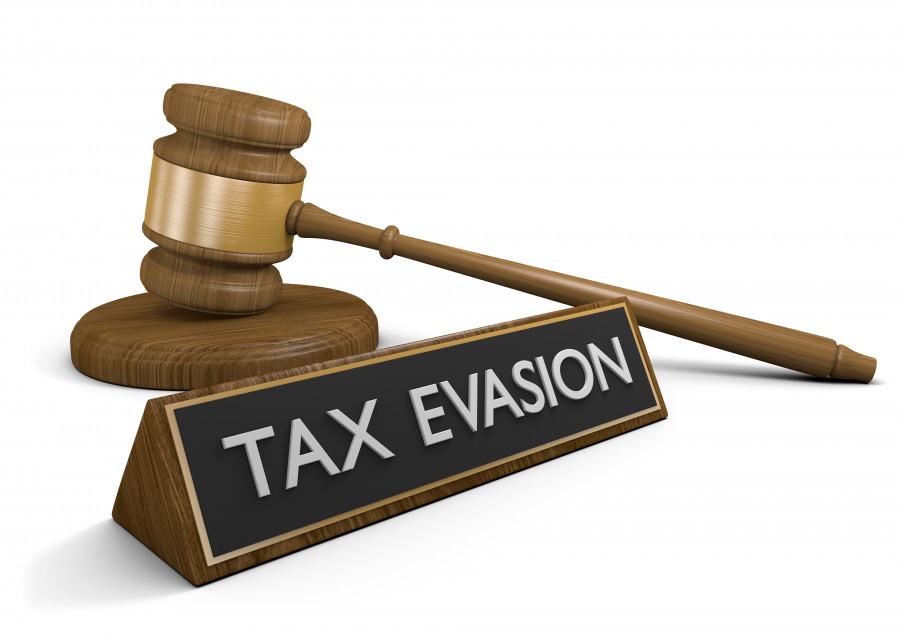Money
Tax authorities bust fake VAT bill racket
Individuals associated with more than 170 firms charged with tax evasion amounting to Rs22 billion.
Prithvi Man Shrestha
The Department of Revenue Investigation has filed a flurry of fraud cases against various individuals associated with more than 170 firms, launching its biggest action against tax evasion since 2019.
The errant companies, among them multinational Varun Beverages, were charged with evading taxes to the tune of Rs22 billion. They were involved in selling and buying fake value added tax (VAT) bills, the tax watchdog said.
According to the department, it has filed cases against most of the firms producing bogus VAT bills and selling them for a commission. Several firms that bought these bills have also been charged.
As of March-end, the department had filed cases against people associated with 160 firms at the district courts and high courts for dodging taxes totalling more than Rs19 billion.
Additional cases were filed against 12 firms in April for evading taxes worth Rs2.76 billion, according to the department.
In the current fiscal year 2020-21, more than 40 firms have been charged with tax evasion amounting to around Rs12 billion, the department said.
“We have filed cases against 80 percent of the firms found preparing and selling fake VAT bills,” said Ram Prasad Acharya, director general of the department. “Our focus is now on investigating and filing cases against the firms that purchased fake VAT bills in order to dodge taxes.”
According to the department, it has been investigating more than 200 firms for selling fake VAT bills and around 1,500 firms for buying them. “We have filed very few cases against buyers of fake VAT bills,” said Acharya.
Given the large number of firms involved in the fake bill racket, particularly those that have purchased such bills, the actual amount of tax evasion could be much higher, department officials said.
The sellers produced such bills on a large scale and sold them to various firms for a certain percentage as commission according to the value of the bills.
The buyers submitted the paperwork falsely claiming that they had paid VAT for procuring goods that were never purchased. The VAT money did not go into the government’s account.
The sellers of fake VAT bills used companies registered in the names of poor and ignorant villagers, so they were protected from legal action if things went wrong, according to department officials.
Many poor farmers and illiterate people are defendants in the cases filed by the department at the district courts and high courts.
Unlike in the past, only a few large business houses have been found to be involved in the fake VAT bill scandal.
Varun Beverages—bottler of Pepsi, Diet Pepsi, Seven-Up, Mirinda Orange, Mirinda Lemon and Mountain Dew—is the largest company that has been accused of evading taxes by using fake VAT bills.
“As the investigation into those procuring such bills progresses, some large business enterprise may also be pulled into this scandal,” Acharya said. He refused to divulge the names of such firms.
This is the second time a large fake VAT bill racket was busted. In an infamous scandal about a decade ago, the tax authorities decided to collect Rs6.59 billion from 518 firms.
The incident made national headlines due to the involvement of noted industrialists and businessmen. The revelation of a bigger scam shows that government measures to prevent such incidents have been ineffective. Tax authorities used upgraded software to track unusual behaviour.
In December 2017, tax authorities installed a cloud-based software system that tracks transactions in real time. But, this system has not connected all points of sale.
During the probe that culminated in the latest swoop, the Department of Revenue Investigation found weaknesses in the Inland Revenue Offices and banks that prevented them from noticing ‘suspicious transactions’ conducted by the firms that were selling fake VAT bills.
“These firms were found to have conducted transactions worth millions of rupees within a month of their establishment while there were none the next month. The Inland Revenue Offices failed to notice such unusual behaviour,” former director general of the Department of Revenue Investigation had told the Post last August.
Officials at the Inland Revenue Department said that the Department of Inland Revenue basically relied on the software system of the tax authorities for uncovering the fake VAT bill scandal.
“They take information from our software to spot any deviation in the behaviour of taxpayers. But I am not sure if the Department of Revenue Investigation relied on our system alone to nail the scammers,” he said.




 9.6°C Kathmandu
9.6°C Kathmandu















